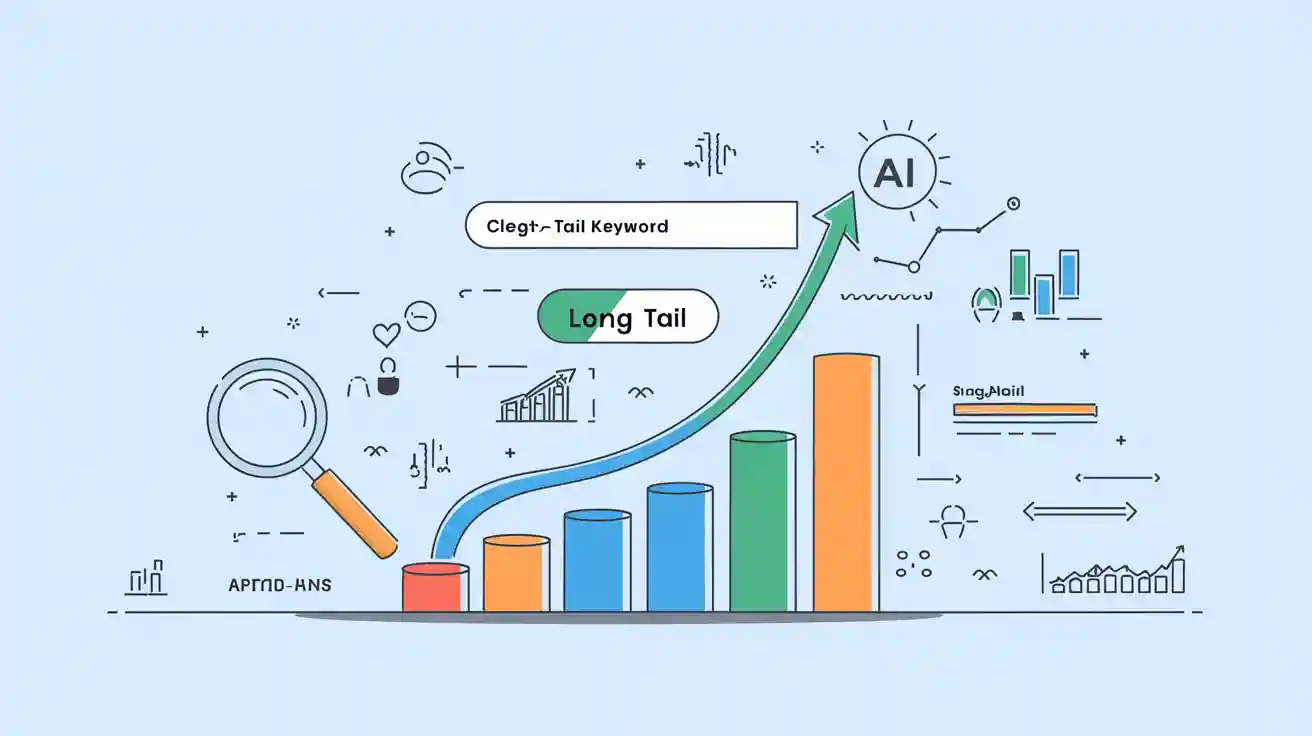What is a Long-Tail Keyword? Definition, SEO Benefits & AI Search Applications
Discover what a Long-Tail Keyword is, its definition, and why it matters for SEO and AI-powered search. Learn how long-tail keywords drive targeted traffic, boost brand visibility, and increase conversions in digital marketing. Includes real-world applications and expert tips.

One-Sentence Definition
A long-tail keyword is a highly specific, lower-competition search term that typically attracts targeted audiences and higher conversion rates, especially in the context of modern AI-powered search.
Detailed Explanation
Long-tail keywords are search queries that are more precise and less competitive than broad, high-volume terms (often called "head" or short-tail keywords). While they often contain three or more words, the true defining feature is their lower search volume and higher relevance to user intent—not just their length. For example, "best running shoes for flat feet women" is a long-tail keyword, while "running shoes" is a short-tail keyword.
The concept is rooted in the long-tail theory, which shows that the majority of search traffic comes from a vast number of unique, low-frequency queries rather than a handful of popular ones. In the age of AI search (like Google AI Overview and ChatGPT), users increasingly use natural, conversational queries—making long-tail keywords even more critical for discoverability and brand visibility.
Key Components of Long-Tail Keywords
- Specificity: They address detailed user needs or questions, often reflecting clear purchase or informational intent.
- Low Search Volume: Each term attracts fewer searches individually, but collectively, they represent the majority of search traffic (WordStream).
- Lower Competition: Easier to rank for, especially for new or niche websites.
- High Conversion Potential: Users searching with long-tail keywords are often closer to making a decision or purchase.
- Alignment with Natural Language: Increasingly important for AI and voice search, as users phrase queries more conversationally (BrightEdge).
Real-World Applications
- SEO & Content Marketing: Targeting long-tail keywords helps brands and websites attract highly qualified traffic, improve rankings, and increase conversions. For example, a small business selling eco-friendly yoga mats can rank for "best non-slip eco yoga mat for hot yoga" rather than competing for the broad term "yoga mat."
- AI Search Optimization: In AI-powered search environments, long-tail keywords are more likely to trigger detailed, context-rich responses and brand citations in AI overviews. This is especially true as users ask longer, more complex questions.
- Brand Visibility & Sentiment Analysis: Platforms like Geneo monitor and optimize brand performance for long-tail keywords across AI search engines, helping brands track sentiment trends and improve their presence in both organic and AI-generated results.
- PPC Advertising: Long-tail keywords often have lower cost-per-click (CPC) and higher ROI, making them ideal for targeted ad campaigns.
Related Concepts
- Short-Tail Keyword: Broad, high-volume, and highly competitive search terms.
- Keyword Research: The process of identifying valuable keywords, including long-tail opportunities.
- Search Intent: The underlying goal or motivation behind a user's search query.
- Organic Traffic: Website visits generated from unpaid search results, often driven by effective long-tail keyword targeting.
Ready to boost your brand's visibility in the AI search era? Try Geneo for real-time long-tail keyword monitoring, sentiment analysis, and actionable content optimization insights.
